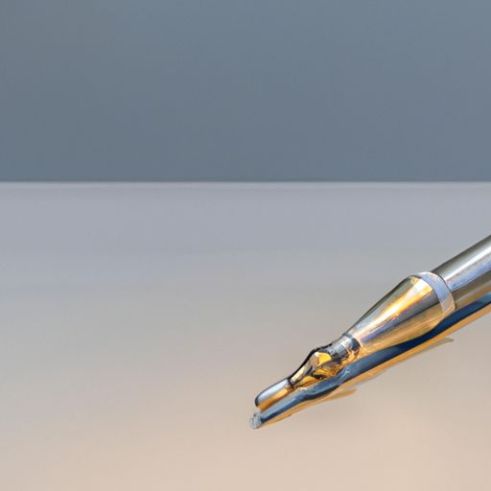Table of Contents
Tungsten Steel vs. Cemented Carbide: A Comparison for CNC Machine Tools
Cemented carbide CNC machine tools have become increasingly popular in the manufacturing industry due to their durability and precision. One of the most common applications for cemented carbide tools is in PCB processing, where intricate designs and tight tolerances are required. Tungsten steel, another popular material for CNC machine tools, is often compared to cemented carbide for its suitability in PCB processing.
Tungsten steel, also known as high-speed steel, is a type of tool steel that is known for its high hardness and wear resistance. It is commonly used in cutting tools, drills, and end mills. While tungsten steel is a reliable material for many applications, it may not be the best choice for PCB processing due to its lower hardness compared to cemented carbide.
Cemented carbide, on the other hand, is a composite material made of tungsten carbide particles bonded together with a metal binder, usually cobalt. This combination of materials results in a tool that is extremely hard and wear-resistant, making it ideal for applications that require high precision and durability. In PCB processing, where the tool must be able to withstand the high speeds and pressures involved in drilling small holes, cemented carbide is often the preferred choice.
One of the key advantages of cemented carbide over tungsten steel is its superior hardness. Cemented carbide tools can maintain their sharpness and cutting edge for much longer than tungsten steel tools, resulting in higher productivity and lower tooling costs in the long run. This is especially important in PCB processing, where the quality of the drilled holes directly impacts the performance of the finished circuit board.
In addition to hardness, cemented carbide also offers better thermal conductivity and resistance to thermal deformation compared to tungsten steel. This is crucial in PCB processing, where the heat generated during drilling can affect the accuracy and quality of the holes. Cemented carbide tools are able to dissipate heat more effectively, resulting in more consistent and precise drilling operations.
Another important factor to consider when choosing between tungsten steel and cemented carbide for CNC machine tools is the cost. While cemented carbide tools may have a higher upfront cost compared to tungsten steel tools, their longer tool life and higher productivity can result in overall cost savings in the long term. For manufacturers looking to maximize efficiency and quality in PCB processing, investing in cemented carbide tools may be a wise decision.
In conclusion, while tungsten steel is a reliable material for many applications, cemented carbide is often the preferred choice for CNC machine tools in PCB processing due to its superior hardness, thermal conductivity, and resistance to thermal deformation. By choosing the right tool material for the job, manufacturers can ensure high precision, durability, and cost-effectiveness in their Machining operations.
The Benefits of Using Cemented Carbide Drill Bits for Micro PCB Processing
Cemented carbide CNC machine tools have become increasingly popular in the field of micro PCB processing due to their durability and precision. Tungsten steel, also known as cemented carbide, is a composite material made up of tungsten carbide particles bonded together by a metal binder, typically cobalt. This unique combination of materials gives cemented carbide drill bits exceptional hardness and wear resistance, making them ideal for cutting through tough materials like PCBs.
One of the key benefits of using cemented carbide drill bits for micro PCB processing is their longevity. Unlike traditional high-speed steel drill bits, which can wear Down quickly when cutting through hard materials like fiberglass or Copper, cemented carbide drill bits can maintain their sharpness and cutting edge for much longer. This means that operators can achieve consistent and precise results over an extended period of time without having to constantly replace worn-out drill bits.

In addition to their durability, cemented carbide drill bits also offer superior precision when it comes to micro PCB processing. The hardness of tungsten steel allows for more accurate and clean cuts, resulting in smoother edges and tighter tolerances. This is crucial when working with intricate PCB designs that require precise drilling and routing to ensure proper functionality.
Furthermore, cemented carbide drill bits are highly resistant to heat, which is a common issue when working with PCBs. The high temperatures generated during the drilling process can cause traditional drill bits to warp or lose their sharpness, leading to poor quality cuts and potential damage to the PCB. Tungsten steel, on the other hand, can withstand high temperatures without compromising its cutting performance, making it an ideal choice for applications where heat resistance is essential.
Another advantage of using cemented carbide drill bits for micro PCB processing is their versatility. These drill bits come in a variety of shapes and sizes, allowing operators to choose the right tool for the job based on the specific requirements of the PCB design. Whether drilling small holes for component mounting or creating intricate patterns for circuit routing, cemented carbide drill bits can handle a wide range of tasks with precision and efficiency.
In conclusion, cemented carbide CNC machine tools made from tungsten steel are an excellent choice for micro PCB processing due to their durability, precision, heat resistance, and versatility. By investing in high-quality drill bits made from this advanced material, operators can achieve superior results and maximize productivity in their PCB manufacturing processes. Whether working on small-scale prototypes or large-scale production runs, cemented carbide drill bits offer the performance and reliability needed to meet the demands of modern PCB design and fabrication.
